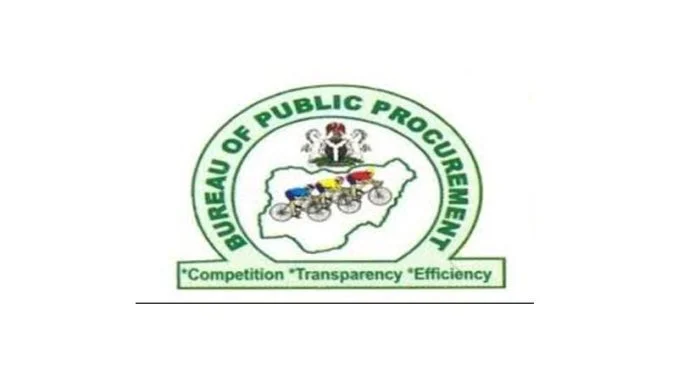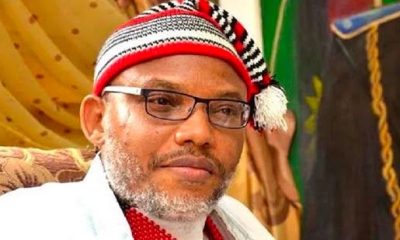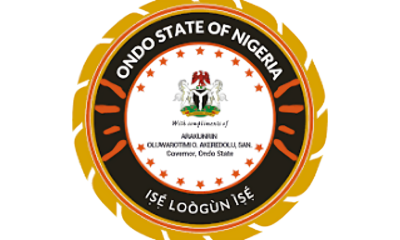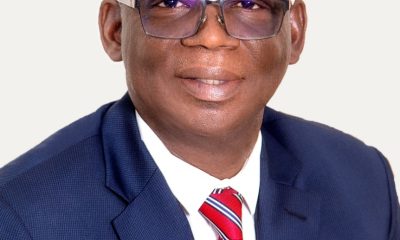COVER
Contractors Kick against Sanctions in Procurement Act Amendment

By Ubong Ukpong, Abuja
Stakeholders in the public procurement sector yesterday kicked against procurement Act amendment, seeking to punish contractors for unnecessarily delaying completion, or abandonment of projects awarded to them.Director General of the Bureau for Public Procurement (BPP), Dr.
Adebowale Adedokun and the immediate past Director General of the agency, Emeka Ezeh both told the House of Representatives committee on Public Procurement that there was no need amending the law to punish contractors, as such provisions were always contained in the contract. Dr. Adedokun said the Public Procurement Act, 2007 harmonized the existing government policies and practices by regulating, setting standards and developing the legal framework for Public Procurement in Nigeria to give room for competition and transparency.He said, “The intending amendment seeks to sanction contractors who delay in completion of contract within a stipulated time. This sanction globally is generally included in the conditions of contract and it is outside the intendment of the PPA.“The Public Procurement Act does not regulate contract implementation rather the standard condition of contract and contract of agreement regulates whatever transpires after a validly awarded contract.“In this regard, the clauses in the contract agreement prescribing sanctions for contractors as included in the Bureau’s Standard Bidding Documents should suffice. Therefore, the proposal to incorporate contract implementation procedures into the Public Procurement Act is overbearing and will negate the intentions of its establishment.“The Bureau, as the regulatory body and by the powers conferred on it by the Act, has issued Standard Bidding Documents and Standard Conditions of Contract, which are of global standards and have already catered penalty for erring contractors.“The Bureau, therefore recommends that the Committee should rather help in the proper implementation and enforcement of the existing laws by ensuring that funds for contracts awarded should be provided as and when due.“This is because the solution the amendment intends to provide is not a matter of law but rather of implementations, as a procuring entity who fails to release funds to a contractor for timely completion of a project, will be guilty of the contractor’s delay in completion of the project.“In view of the above, the Bureau respectfully request the committee to reconsider the amendment and seeks for the Parliament’s support for proper implementation of the Public Procurement Act to enhance efficiency in the public Procurement space in Nigeria.”The immediate past Director General of BPP, Emeka Ezeh also argued that even though the intendment of the proposed amendment on the surface seems noble and well meaning, it appeared focused on addressing an effect rather than the cause of an obvious challenge in our contracting environment.He said, “I will rather advise that the challenge be seen from a holistic picture Starting from needs assessment to projects design/preparation/projects scoping through adequate budgetary provision to procurement process (selection of contractor) to contract execution( project implementation).“The proposed amendment tends to focus on the last leg of the project delivery chain which is a contract management issue not usually covered by public procurement legislation. However, a project can be compromised at any of the stages leading to delay in completion.“For instance, if a need is not well articulated, the solution provided by the project could lead to the risk of abandonment or if the design was not competently done or due to time constraint detailed feasibility/engineering designs were not done, at the stage of implementation, issues of variations/augmentations could arise.“In the same vein, if during procurement, an incompetent contractor is selected due to abuse in the application of relevant guidelines, the project is destined to be at risk of delays.“Again, even if there were no risks up to contract award which is what the proposed amendment assumes, a project could be delayed due to nonpayment as and when due or due to new government fiscal policies that could impact on the cost of the project.“The delays in adjusting the contract sum to align with such policies could pose a risk to the project.“More importantly, the ill the amendment intends to cure is adequately contained as a standard provision in our standard conditions of contract. For every major project, this is part of the conditions of contract.“Any engineer or Quantity Surveyor or Architect worth his certificate knows this as a matter of fact. Professionally, it is called “liquidated damage” —which is a penalty imposed on a contractor subject to a maximum of 5%, usually for delay in completing a part or all of a project in line with the program of work except if the delay is due to force majeure or an extension of time duly granted by the employer through the engineer.”Chairman of the House Committee on Public Procurement, Unyime Idem said one mischief that has plagued the public procurement space in the country is the practice by contractors to delay projections unduly, intentionally, and without any fear of sanctions, adding that this mischief is driven by a number of factors, including incompetence of the contractors, non – prioritization of Federal Government projects, intention to apply for price variation, bad faith, compromise, absence of patriotism, economic sabotage, corruption, among others.He said members of the House have studied the difference in culture and approach in other jurisdictions when it comes to the issue of executing government projects, citing Egypt where contractors are required to work both day and night and all through the week as an example.According to him, through that practice, project time is reduced by about 50% to 60%, and a project that should ordinarily take 24 months may take 12 months or less, while in Nigeria, a project that should take 12 months may take a minimum of 5 to 6 years, with the chances of such projects being abandoned standing at about 70% to 75%.In addition, said over 90% of capital projects are eventually subjected to requests for variation, which in part is driven by the issue of delay and poor project management that results in increased costs, driven by factors like inflation and devaluation.He said, “While a contractor may argue that inflation and devaluation may impact its costs, it is expected that each contractor must have shown enough financial capacity, which would have contributed to the award of the contract.“It is therefore expected that the contractor should deploy the best project management practice by purchasing materials upfront and locking down prices, if possible.“I must also add that this culture of project delays preceded the current problem of inflation and devaluation. Hence, it is a problem that we now must address from a legislative perspective.“The instant problem impacts governance in Nigeria and has affected our ability to deliver the dividends of democracy to the Nigerian people.“We as legislators engage with our constituents, who are at the grassroots level, and when we are confronted with the issue of delayed and/or abandoned projects, we struggle to find answers and explanations.”COVER
Afreximbank Net Interest Income Grows 4.53% to $ 411.2m in Q1

By Tony Obiechina, Abuja
African Export-Import Bank (Afreximbank) has released the consolidated financial statements of the Bank and its subsidiaries for the three months ended 31 March 2025.Financial HighlightsAfreximbank Group delivered satisfactory financial performance for the first quarter of 2025, meeting expectations with solid profitability, strengthened liquidity and a resilient capital base.
This performance provides a springboard for the Bank to continue playing its pivotal role of advancing the aspirations of Africa and the Caribbean for economic transformation and sustainable development in the months and years ahead. Net interest income grew by 4.53% to $411.2 million compared to prior year, driven by growth in interest earning assets, complemented by effective management of borrowing costs, helping the Bank to cushion the marginal decline in total interest income due to softening benchmark rates.Fee income from Guarantees and Letters of Credit saw robust growth of 47% and 36% respectively, partially offsetting lower advisory fees to contribute to total unfunded income of $26.9 million for Q1-2025. While this represented a 7.41% decrease from $29.0 million in Q1 2024, the strong performance in Off-balance sheet assets is in line with the Bank’s strategy to grow unfunded business.The Group posted strong Net Income of $215 million, a 21% increase year-on-year from $178 million in the prior period.The Group’s total assets and contingent liabilities increased by 6.4%, reaching $42.7 billion as of 31 March 2025, up from $40.1 billion at FY’2024. On-balance sheet assets grew by 4.85% to $37.0 billion; driven primarily by a 58% surge in cash balances to $7.4 billion, while Off-balance sheet assets i.e. letters of credit and guarantee volumes increased by a 19% to reach $5.7 billion at the end of Q1-2025.Net loans and advances closed Q1-2025 at $27.8 billion; down from the FY2024 closing position reflecting early repayments from certain customers on account of improved foreign currency balances position of some sovereign borrowers. Importantly, the Loan Asset Quality remained strong, with the Non-Performing Loans (NPL) ratio at 2.44%, a modest increase from 2.33% at FY’2024 – well below the Bank’s strategic NPL ceiling of 4%.Driven by inflationary pressures and growing personnel costs, operating expenses rose by 23% to reach $75.4 million by 31 March 2025. Despite this, Afreximbank Group maintained a healthy Cost-to-Income Ratio of 16%, below its strategic range of 17-30%.Afreximbank’s liquidity profile strengthened considerably, with liquid assets now comprising 20% of total assets, up from 13% at the close of FY’2024. This higher liquidity position was as a result of successful fund-raising, coupled with loan repayments received during the quarter.Shareholders’ funds increased by 3.4%, reaching $7.5 billion, driven by strong internally generated capital of $215.4 million in addition to new equity investments under the second General Capital Increase (GCI II) programme.Operating HighlightsIn line with the Afreximbank strategic objective of driving Industrialisation and export development, the Bank and the Government of Kenya ratified a number of initiatives designed to support the development Industrial Parks (IPs) and Special Economic Zones (SEZs) in Kenya under the US$3 billion Kenya country programme.The projects which include Dongo Kundu Industrial Park in Mombasa and Naivasha SEZ II in Mai Mahiu, are key components of Kenya’s Vision 2030 plan to boost export manufacturing and industrialisation. Afreximbank’s support for these initiatives will specifically enhance infrastructure development, attract investment, and strategically position Kenya as a key hub for African and global commerce.The rollout of the Pan-African Payments and Settlement System (PAPSS) continues to gain momentum with KCB Group in Kenya and Bank of Kigali in Rwanda launching the platform, becoming the first banks in their respective countries to offer seamless, instant, and affordable cross-border payments in local currencies across Africa.Aligned with its mandate to promote Global Africa following the recognition of the African Diaspora as the 6th region of Africa, the Bank further cemented its expansion and presence in the Caribbean with the historic groundbreaking ceremony to kick off the construction of the first ever Afreximbank African Trade Centre (AATC) outside of Africa in Bridgetown, Barbados. AATC Barbados will also host its regional office. The Barbados AATC is an authentic icon of trade embodying the ambition, resilience, and influence of leading commercial cities in Africa and the Caribbean that serve as dynamic focal points for commerce, fostering regional and global trade connections, and is expected to enhance intra-and extra-African trade, with a focus on countries of the Global South.Denys Denya, Afreximbank’s Senior Executive Vice President, commented:“Our QI 2025 results, which were in line with expectations, reflected a strong and resilient financial performance, notwithstanding continued macroeconomic challenges. With solid profitability growth, a strengthened liquidity position, and a well-capitalised balance sheet, the Group is firmly positioned to continue playing a pivotal role in advancing the aspirations of Africa and the Caribbean for economic transformation and sustainable development.”COVER
Wike Presents N1.7trn 2025 Budget to NASS

By Laide Akinboade, Abuja
The Minister for Federal Capital Territory (FCT), Nyesom Wike, on Wednesday presented N1.7 trillion as the total FCT 2025 statutory budget to the National Assembly.The FCT Minister presented the budget on behalf of President Bola Tinubu to the House committee on FCT in Abuja.
He said the sum of 1,289,690,124,776 Naira is for capital projects, which constitutes 72. 33% of the budget. He said FCT Administration is indeed grateful for the understanding and magnanimity of the Honourable Committee in considering the FCT 2025 Statutory BudgetHe reminded the committee that FCT Statutory Budget is funded from proceeds of the 1% of the 52.68% Statutory Allocation of the Federal Government from the Federation Account, InternallyGenerated Revenue (GR) and the other sources as contained in the Revenue Fiscal Framework.He noted that the 2025 budget is accordingly prepared within the context of the Medium-Term Expenditure Framework (MTEF), the Medium-Term Development Plan (MTDP) and the International Public Sector Accounting Standards (IPSAS). The Budget also took into consideration the Federal Government’s assumptions for 2025.The Budget proposal also has taken into cognizance the estimated revenue accruing to the FCT through the Federation Account and recognizes other in-house efforts to bo0st revenue generation capabilities in FCT. The focus of the capital budget is mainly on completion of on-going projects that have a high impact on service delivery.He said, “Accordingly, a fiscal framework of the sum of N1,783,823,708,392.00 comprising Distributable Revenue of N1,392,573,937,087.00 and Non-Distributable Revenue of N391,249,771,305.00 has been proposed for the FCT 2025 Statutory Budget after due deliberations with all the Revenue Generating Agencies of the FCTA, taking into consideration the parameters highlighted in paragraph 5 above.”When compared 2025 Budget proposal of the sum of N1,783,823,708,392.00 with the Revised 2024 Appropriation of the sum of N1,668,770,61 0,283.00, there is an increase of the sum of N115,053, 098,108.76 (7%) in the 2025 statutory budget proposal.This increase is to achieve a realistic budget performance in 2025 having considered the remarkable improvement in the revenue generated in 2024 fiscal year”.The chairman of the House of Representatives’ Committee on the Federal Capital Territory (FCT) Hon. Aliyu Betara earlier commended the FCT Minister for tackling the current waves of insecurity in FCT, being able to deliver its mandate effectively.He said, “We have noted with satisfaction the completion of various projects and new ones embarked by the FCT administration. Out of the total FCT 2025 statutory budget of 1,783,823,708,392 Naira, the sum of 1,289,690,124,776 Naira is for capital projects, which constitutes 72.33% of the budget.”It is important to note that out of the total capital proposal of the sum of 1,889,014,910,776 Naira is for ongoing projects, and this constitutes 85% of the capital project. In effect, what I’m saying is, out of the total amount earmarked for capital for 2025, the FCT is using or utilizing or proposing to use 85% of that amount for completion of ongoing projects. The sum of 200,775,212,000 is just for new projects”.The Minister had earlier presented the same 2025 budget to the Senate Committee on FCT.The Chairman of the Senate Committee on the Federal Capital Territory (FCT) is Senator Ibrahim Bomai, who said FCT is presenting one of the best budgets so far.”And before I allow the floor for questions, I would also like to note that the IGR proposed by FCT has greatly improved. The FCT is proposing 608 billion just IGR.”So this is something to commend the Honorable Minister of State and his staff for doing a wonderful job”, he said.COVER
LP Crisis: NWC Accuses Ajero-led NLC of Destabilization

By Mike Odiakose, Abuja
The leadership of the Labour Party yesterday alleged that Nigeria Labour Congress (NLC), led by Joe Ajero, is responsible for the crisis rocking the party and not the Federal government.In his reaction to the allegation by Ajero, Nenadi Usman and others said that the Labour Party is being destabilized by the federal government because of the potential of the party, the party’s Spokesman; Obiora Ifoh said they are economical with the truth.
“The NLC President, Ajero who is now sounding like a broken record, also restated his resolve to invade unannounced the national and state Secretariats of the Labour Party, with his armies, with the intention to take over the party forcefully.”We must state clearly and categorically that if there is any person or organization that has destabilized the Labour Party or who is working to destabilize the party, it is no other person than Joe Ajero and the NLC.”We must also state here that after the general election in 2023, the party has no issues at all, we had no faction and we had no major disagreement in the party.”It was Ajero who went ahead to illegally, unprofessionally and unconstitutionally set up a so-called Transition Committee which went all over the place making noise and debasing the image of the party.”It was the same Committee set up by Ajero that was going to INEC everyday, constituting nuisance, all in attempt to destabilize the party, mobilizing people, including old and retired men, including Abdulawaheed Omar, Ejiofor, Lawson Osagie and Prof. Theophilus Ndubaku, men who should be resting after many years of serving their fatherland, to go against the interest of the party.”Nigerians all over, have asked Ajero to concentrate on his primary assignment to fight for the welfare of workers. The regulatory body in charge of the Labour Union in the Ministry of Labour has also publicly admonished Ajero to excuse himself from matters concerning politics and to face his legitimate assignment as a defender of workers rights.”We put it on record that Ajero’s led NLC in all its ramifications has failed the Nigerian workers as shown by his last May Day speech. Today, Nigeria workers are oppressed, the economy is not working, there are unfair practices against workers, and nobody speaks for the oppressed workers in Nigeria, yet Ajero is busy plotting his future political ambition and toiling with the welfare of workers.”Over the past few years, instead of the NLC to be in support of the party, and for the party to draw strength from the Labour movement as it’s done in some Scandinavian countries such as in Brazil, Australia etc, what we found in Nigeria is a reversed approach were the NLC which ought to be a source of strength, is constituting itself as a destabilizing factor for the Labour Party.”Since 2015, this same NLC was the one that set up the Caretaker Committee that is unknown to the party constitution headed by one Salisu Mohammed. If there is any group or persons who have worked against the interest of the Labour Party, it is NLC and Joe Ajero.”So he should not shift the blame to any person, he should squarely take responsibility for whatever is happening in the party today.”We are also calling on all genuine members of the Labour Party to distance themself from the illegal activities of the Nenadi Usman group and their ploy to manipulate unsuspecting party members from parting with their hard earned money through illegal Congresses they are planning.”They do not have the powers to conduct any party activity, congresses inclusive. Be warned.”Labour Party open to all Nigerians but not for sale — NLC President
Nigeria Labour Congress (NLC) has declared the Labour Party open to defectors, pledging to provide equal political opportunities for all Nigerians regardless of social status, religion, or ethnicity.The Congress added that the party is open to all Nigerians and willing to welcome defectors.NLC President, Joe Ajaero who spoke in Abuja during the National Executive Council (NEC) meeting of the Labour Party held yesterday alleged that government agencies were actively working to destabilise the party through various clandestine plots.“All agencies of government are involved in these destabilisation plots. We must be clear about this.“They must be told to remove their hands from the organisation of the Workers’ Party. That is a sin. Across over 57 countries of the world, Labour Parties are functional and driven by workers’ unions,” Ajaero warned.He cited the British Trades Union Congress (TUC), which has for decades operated the Labour Party using a union office, as an example of global practice.“So why should Nigeria be different? Why would the government keep eyes on the Labour Party here?” He queried.Ajaero reaffirmed that the Labour Party is not the exclusive preserve of the NLC but a party “formed by Congress and given to Nigerians with a clear-cut ideology.”He emphasised the platform’s openness and commitment to inclusivity.He also criticised attempts to use the Supreme Court to interfere in internal party affairs, asserting that the apex court has already ruled that internal crises should be resolved through mechanisms within the party.“When people talk about Supreme Court rulings, I wonder if the Supreme Court is now the one to run political parties. It is not the Supreme Court that constitutes the Labour Party,” he insisted.Taking a swipe at other political parties that charge exorbitant fees for expression of interest and nomination forms, Ajaero contrasted them with the Labour Party, which he said is rooted in pro-people values.In the Labour Party, we don’t charge hundreds of millions to contest elections because we can’t afford it. We are in politics to add value to society, to bring relief to the oppressed—not to profit from the people’s misery,” he said.Encouraging defectors from other political parties to join, Ajaero stressed the enduring institutional nature of the Labour Party.“This is our party. We do not defect. NLC and TUC are institutional members. When politicians defect, we remain. Soldiers come, soldiers go, but the barracks remain.”He called on all stakeholders to unite and work collectively towards strengthening the party and achieving its goals.Earlier, the Chair of the Board of Trustees of the party, Dr Sylvester Ejiofor, lamented that previous efforts to resolve internal crises had failed because they lacked alignment with the party’s constitution, the Electoral Act, and the widely accepted ‘Consent Judgement’ of the Federal High Court in Abuja.





















